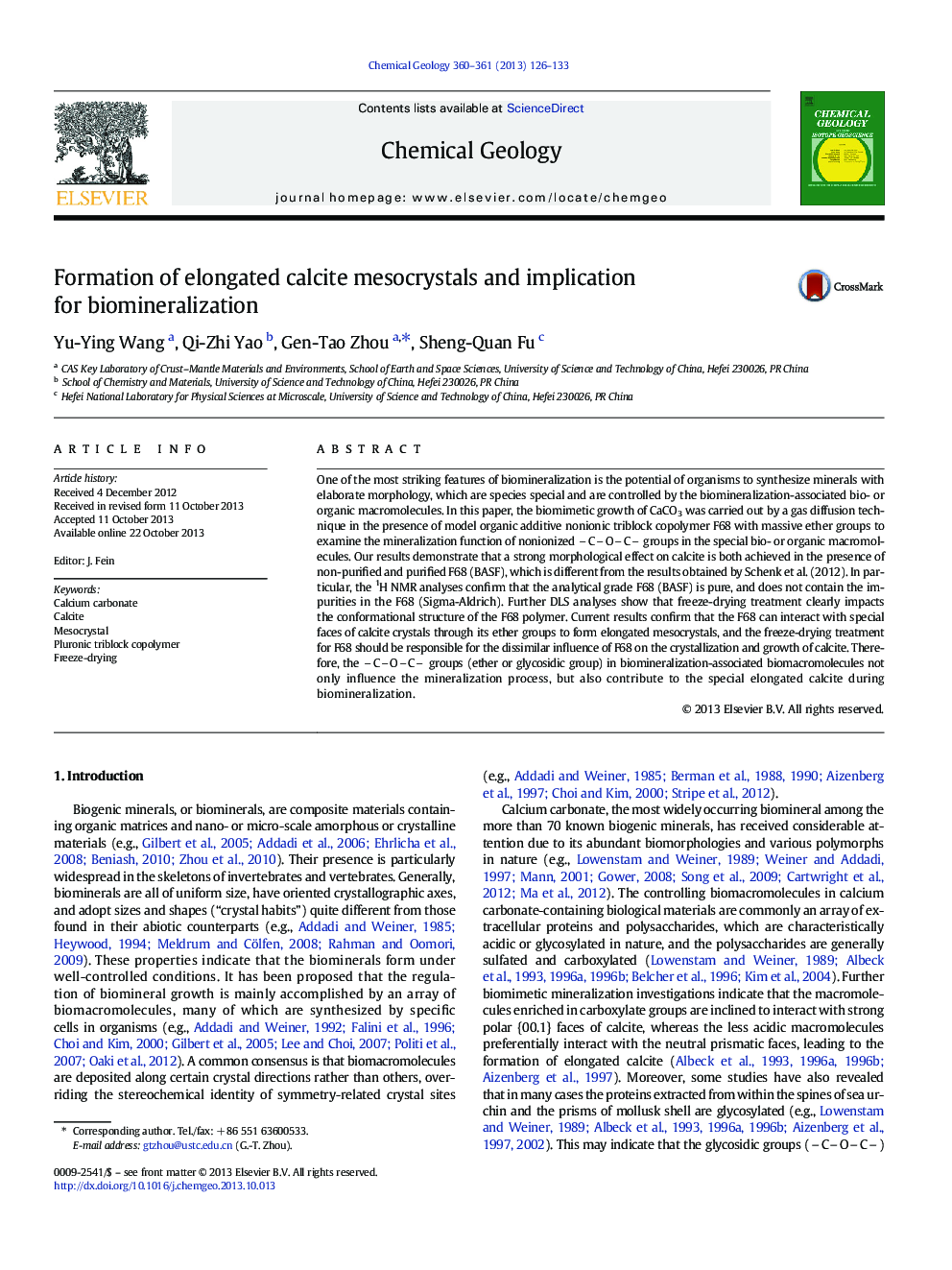| کد مقاله | کد نشریه | سال انتشار | مقاله انگلیسی | نسخه تمام متن |
|---|---|---|---|---|
| 4698865 | 1637609 | 2013 | 8 صفحه PDF | دانلود رایگان |
• CaCO3 mineralization experiments with purified or non-purified F68 were revisited.
• Elongated calcite prisms are produced with purified or non-purified F68 (BASF).
• Analytical grade F68 from BASF is pure, no detectable impurities within it.
• Different freeze-drying treatments for F68 lead to the various growth of calcite.
• F68 itself, and not impurities in it, affects the crystallization and growth of calcite.
One of the most striking features of biomineralization is the potential of organisms to synthesize minerals with elaborate morphology, which are species special and are controlled by the biomineralization-associated bio- or organic macromolecules. In this paper, the biomimetic growth of CaCO3 was carried out by a gas diffusion technique in the presence of model organic additive nonionic triblock copolymer F68 with massive ether groups to examine the mineralization function of nonionized COC groups in the special bio- or organic macromolecules. Our results demonstrate that a strong morphological effect on calcite is both achieved in the presence of non-purified and purified F68 (BASF), which is different from the results obtained by Schenk et al. (2012). In particular, the 1H NMR analyses confirm that the analytical grade F68 (BASF) is pure, and does not contain the impurities in the F68 (Sigma-Aldrich). Further DLS analyses show that freeze-drying treatment clearly impacts the conformational structure of the F68 polymer. Current results confirm that the F68 can interact with special faces of calcite crystals through its ether groups to form elongated mesocrystals, and the freeze-drying treatment for F68 should be responsible for the dissimilar influence of F68 on the crystallization and growth of calcite. Therefore, the COC groups (ether or glycosidic group) in biomineralization-associated biomacromolecules not only influence the mineralization process, but also contribute to the special elongated calcite during biomineralization.
Journal: Chemical Geology - Volumes 360–361, 18 December 2013, Pages 126–133
